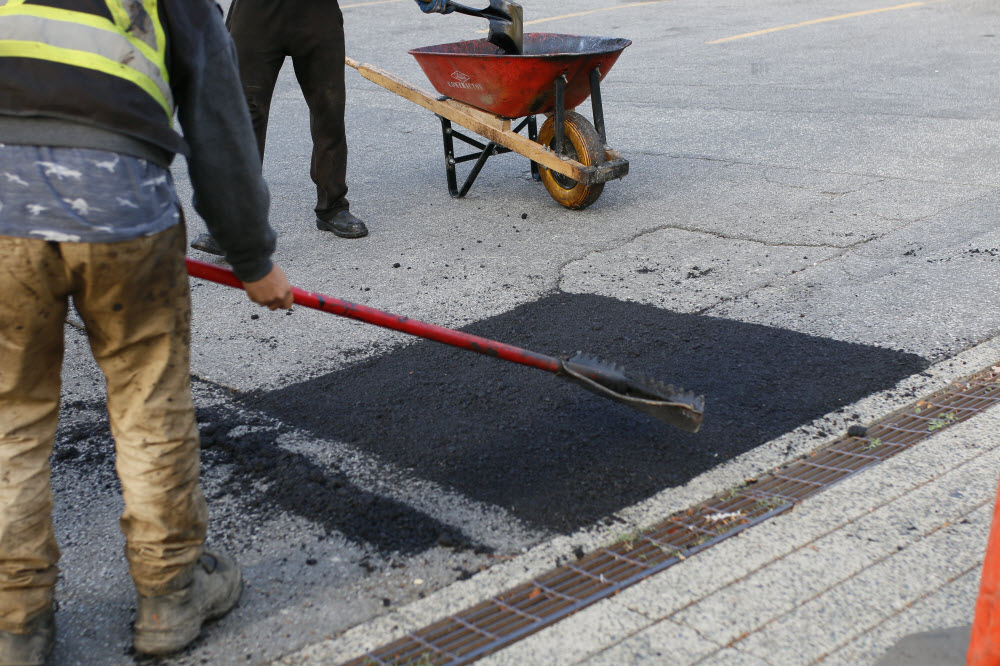Asphalt can be an ideal choice in terms of material when constructing a new driveway or paved surface. It is relatively cheap, convenient, and easy to work with. However, asphalt is less appealing in that it tends to get damaged more easily than a driveway made of concrete or interlocking stone. The good news is that asphalt is also reasonably easy to repair, so while you may have to treat your asphalt driveway more often, these repairs will remain fairly low maintenance. In addition to general cracking, asphalt driveways can become stained by oil leakage and harmed by harsh or hot weather in the winter and summer months. A driveway will last longest if it is consistently maintained, so knowing how to repair and preserve your asphalt driveway is essential. Below are some tips, techniques, and tools which you can use to make sure your driveway stays in the best condition possible, which will make doing repairs that much easier.
Important Factors
The most significant factor which affects the condition of an asphalt driveway is the climate. Asphalt is directly affected by weather and temperature, which means that temperate climates like British Columbia can take a toll on these surfaces. The best time to clean or repair an asphalt driveway is when the temperature is in between extreme heats and freezes, which is somewhere between 10 and 24 degrees Celsius. In addition to the balance of temperature, you should be sure to repair cracks during a break in precipitation as well. Asphalt needs time to set, so in order to ensure this process isn’t harmed by water infiltration, find a couple of days when the forecast is clear to do your repair job.
Cleaning Methods
Before repairing a portion of an asphalt driveway, it’s essential to make sure the repair area is as clean as possible so that the asphalt sets appropriately. More generally, asphalt driveways can become dirty due to oil, dust, or particulates, making periodic cleaning of the surface a necessity. Some ways to clean asphalt are as simple as using a push broom or using hot water with dish detergent to scrub away stains. For more stubborn spots and oil spills, you can use a clay-based kitty litter. Simply place the litter on top of the oil and give it time to soak up the liquid. Finally, you may want to use a power washer to give your driveway a comprehensive cleaning about once a year. After power washing, be sure to apply a sealant to the driveway, which will make future cleaning much more straightforward.
Tools for Preparing to Resurface
Asphalt driveway resurfacing can either be a do it yourself job or done by a professional. If you choose to do repair or resurfacing jobs yourself, you’ll need to make sure that you have the right equipment to help make setting new asphalt as easy as possible. First, you’ll want to have a simple wire brush. This will allow you to scrape and brush away all of the excess grit and pebbles that have become embedded in the cracks of your driveway. The top priority when preparing a crack for repair should be to make sure it is vacant and clean. The brush will make this process much quicker. You also may want to grab a flathead screwdriver. This will allow you to dig out loose chunks of gravel or asphalt so you can replace them with fresh mix. Removing these fragile pieces will help maintain the overall integrity of an asphalt surface. After brushing the asphalt crack, it can be helpful to use a leaf blower or a shop vacuum to get any remaining pieces of gravel out of the crevasse. This will allow you to remove particles which resisted brushing. Finally, the last step before a resurfacing is to power or pressure wash the driveway as mentioned above. Having a thoroughly clean surface is critical in order for a sealant to set properly, and the only way to clean a driveway deeply enough is with a power washer. After all, the cracks have been fully excavated, and your driveway is properly washed, new asphalt can be lain to fill cracks, and a sealant can be applied to the surface.
If properly followed, these steps will leave your driveway in impeccable shape for carrying out repairs, increasing the durability of an asphalt driveway for years to come.
